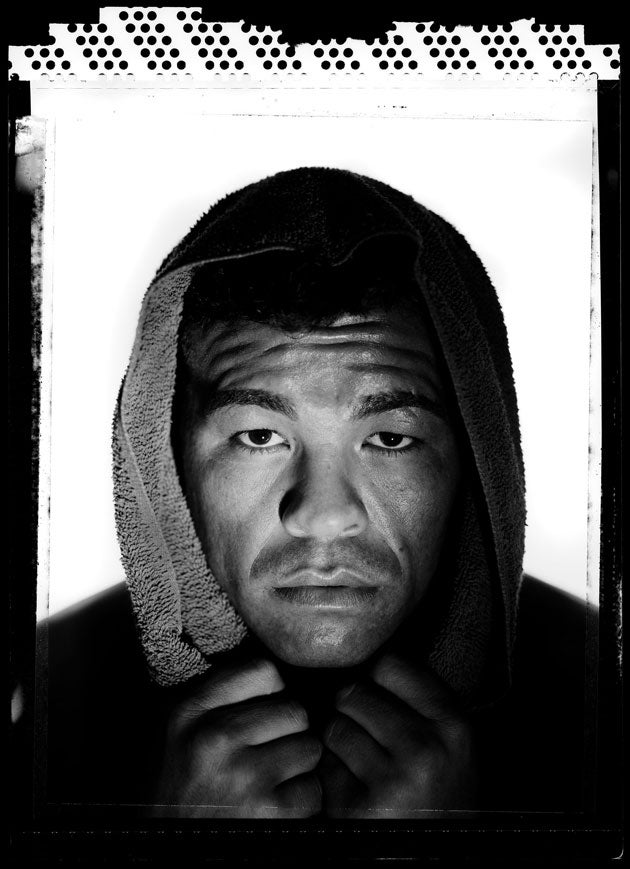Boxing: Violence follows fighters when they leave the ring
Macabre fate so often awaits world champions stalked by homicide and suicide

Vernon Forrest was one of the fight game's finest, both as a boxer and as a man. Last weekend his life ended face down in an Atlanta street, his back riddled with bullets, his 11-year-old godson standing stunned with a candy bar in his hand which Forrest had just bought him at a garage where he had stopped to put air in the tyres of his Jaguar. Two men appeared and tried to rob him of his wallet. Forrest chased them off, pulling out a gun he carried for self-protection in one of America's most violent cities, and when he turned to walk back to his car the assailants opened fire and shot him dead.
Forrest was 38, a big-hearted guy, a gutsy fighter and former two-weight world champion who had only recently given up the WBC light-middleweight title. He was known for his work with people with disabilities and had set up a charity called Destiny's Child. "A tragedy beyond belief" is how his promoter Gary Shaw described it.
Alas, one of many among fighting men. And the third in a month. On 1 July, Alexis Arguello, one of the game's true superstars, a fighter-turned-politician from Nicaragua, who won and never lost three world titles, was found dead at his home with a self-inflicted gunshot wound to the chest. He was 57.
Ten days later, another ex-world champion, the Canadian Arturo Gatti, once described as the world's most exciting fighter, died while on a family holiday in Brazil, His wife was arrested on suspicion of strangling him with a strap from her handbag but on Friday police released her after it had been established that the 33-year-old Gatti hanged himself.
What is it about boxing that it lends itself to such untimely deaths, through accidents, suicide or homicide? Victims like Oscar Bonavena, the Argentinian who battled Muhammad Ali, shot dead at 33 outside a Nevada brothel in 1976; Trevor Berbick, 52, the last man to fight – and beat – Ali, killed with a crowbar in a church courtyard in Jamaica in 2006; and in London two years ago, the former British and ABA heavyweight champion James Oyebola, like Forrest one of the sport's most decent men, killed in a cowardly attack by youths outside the nightclub where he was a bouncer. The 6ft 9in Obeyola, who was 46 and had retired from boxing 11 years previously, had simply asked them to stop smoking. He was shot in the head and died four days later. His murderers have been convicted.
The litany of disaster stretches back to Jack Johnson, the first black world heavyweight champion who died in a car crash in 1946, via Rocky Marciano (plane crash), Randolph Turpin (suicide), Freddie Mills (apparent suicide) and Sonny Liston (unexplained). Ring fatalities, thankfully infrequent, are an occupational hazard but why is it that sport's most brutal business has such a lethal legacy outside the ropes, mostly involving former world champions?
The British promoter Frank Warren is not alone in finding it baffling. "You can't legislate for accidents which happen in all walks of life, but all these deaths are tragic and it does seem a bit above average." Do boxers attract violence because of who they are and what they do? Are they simply in the wrong place at the wrong time? "It's possible, I suppose," says Warren, "but what is worrying is the high number of suicides and I wonder if this is because of depression which may follow the end of their careers when they simply do not know what to do with their lives. Frank Bruno suffered in this way but fortunately he got help."
Mike Tyson has said he feared he would end up in the Hudson River with a bullet in his head one day. He is still with us but the question remains as to why so many like him who have fought for their life in the ring violently lose it out of it.
Fight to the death
Stanley Ketchel: US middleweight, 24, shot in Missouri, 1910.
Battling Siki: Senegal light-heavyweight, 28, shot in New York, 1925.
jack johnson: US heavyweight, 68, car crash in Galveston, Texas, 1946.
Harry Greb: US light-heavyweight, 32, died during routine surgery in Atlantic City, 1926.
Freddie Mills: British light-heavyweight, 46, allegedly suicide (found shot in his car) but rumoured gangland killing in Soho, 1965.
Randolph Turpin: British middleweight, 37, suicide near Llandudno, Wales, 1966.
Jackie Paterson: Scottish flyweight, 46, stabbed in bar brawl in Durban, South Africa, 1966.
Rocky Marciano: US heavyweight, 45, private plane crash, Iowa, 1969.
Sonny Liston: US heavyweight, 42, suspected overdose but widely believed to have been killed by the Mafia in his Las Vegas home, 1970.
Salvador Sanchez: Mexican featherweight, 23, car crash in Mexico, 1982.
Victor Galindez: Argentinian light-heavyweight, 31, stock car racing accident in Argentina, 1989.
Trevor Berbick: Canadian heavyweight, 52, battered to death with crowbar in Jamaica, 2006.
Alexis Arguello: Nicaraguan lightweight, 57, suicide in Managua, 2009.
Arturo Gatti: US light-welterweight, 33, suicide in Brazil, 2009.
Vernon Forrest: US light-middleweight, 37, shot in Atlantic City, 2009.
Alan Hubbard
Join our commenting forum
Join thought-provoking conversations, follow other Independent readers and see their replies
Comments
Bookmark popover
Removed from bookmarks